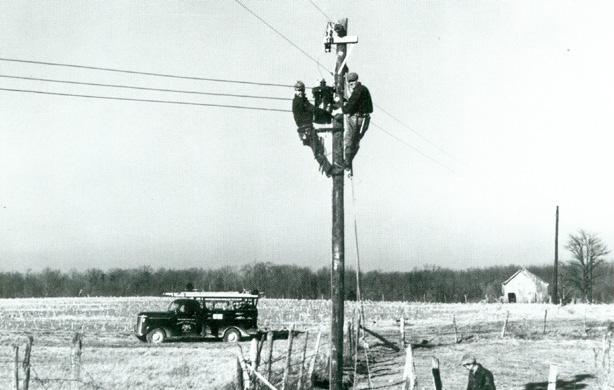
1 minute read
Farmers Mutual Insurance Association
DRUDGERY REPLACED WITH LIGHT
SIOUX COUNTY REC HELPED LEAD THE WAY
Advertisement
Two linemen working on the REC lines in the mid-1900s. Photos courtesy of North West Rural Electric Cooperative.
LOCAL | RELIABLE | SERVICE

fmiahull.com | 712.439.1722
In 1930, nothing marked the difference in the quality of life between city and country quite like electricity did. Electricity started coming to urban America beginning in the late 1880s and the 1890s. Most cities, towns and urban homes were wired by 1920. Reflecting national statistics, only about 10 percent of rural homes in Iowa had electricity by 1925. At the time, more than two-thirds of Iowans still lived on the farm.
“Drudgery” is the word most often used by historians to describe the work of farm families in the 1920s and 1930s. Life on the farm wasn’t worse than in the past – it just seemed that way compared to the advances being made by town and city dwellers. Farm families were still stuck with fatiguing work and menial labor.
“Farmers without electricity milked cows by hand in the light of kerosene lanterns. Farm women cooked over a wood- or coal-burning stove and washed clothes by hand on a washboard. Farm children pumped water and carried it in buckets to the kitchen and the barn. An icehouse, well, or farm cellar provided the only means of keeping foods cool. The privy took on an identity as a rural institution,” wrote Tom Morain, former director of the Iowa State Historical Society. The darkness of the farm versus the bright lights of the city also sapped the morale of farmers and made it difficult to retain young people on the farm. “For more than four decades after town homes were wired for electricity, Iowa farm families endured the pity










